Urban Development Planning MSc Dissertation Published in Urbanisation Journal
9 January 2024
Debayan Chatterjee, alumnus of the Urban Development Planning MSc at The Bartlett Development Planning Unit (DPU) has published a paper in Urbanisation journal with colleague Khushboo Khanna.
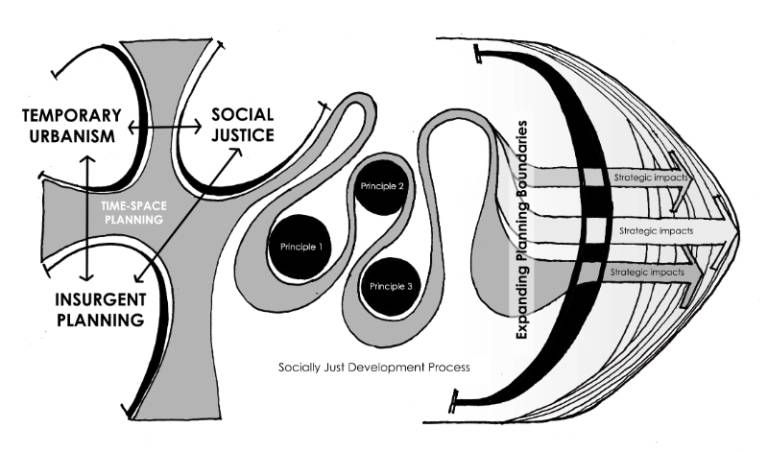
Urbanisation is a peer-reviewed journal that aims to publish comparative and collaborative scholarship to illuminate the global urban condition beginning with a firm footprint in the Global South. Debayan Chatterjee, alumnus of the Urban Development Planning MSc at The Bartlett Development Planning Unit (DPU) has published a paper in Urbanisation journal with colleague Khushboo Khanna, titled ‘Planning Temporariness: Unpacking Time–Space Planning and Its Socially Just Applications in and Around Kolkata’.
This paper stems from the master’s thesis Debayan completed during his studies in 2019-20, and discusses how deliberate adaptation of an alternative Time-Space approach in planning could allow both mainstream and marginalised actors to collaborate in ‘strange’ ways, fostering socially-just time-bound responses that effectively address a diverse set of socio-economic challenges in Kolkata.
Alongside the achievement of his published paper, Debayan is currently working as a Design Lead at Albert Speer and Partner (/ AS+P), and is actively engaged in steering major largescale residential, mixed-use, and entertainment master planning projects in the UAE, KSA, and Oman. Simultaneously, he is also running an online institute called the AUDAcademy which helps students across the globe to inspect and rethink the paradigms of design and its intersection with the city's social, cultural, economic, and environmental fabric, at multiple scales and scopes.
Below, Debayan reflects on how his studies on the Urban Development Planning MSc helped Debayan to develop his career in research and academia.
Debayan's reflections on how life as a student supported his research interests
“Temporary Urbanism has always captivated my interest, even prior to joining the Development Planning Unit. Profoundly influenced by the scholarly contributions of Professor Peter Bishop from UCL and Professor Rahul Mehrotra from Harvard, I ventured into experimenting with similar tactics during my first Urban Renewal project in Kolkata with the Kolkata-Scottish Heritage Trust. However, given the substantial contributions by various scholars to the field of temporary or ephemeral urbanism over the past decades, I initially grappled with defining my unique contribution to this emerging area of research. It was the ‘Urban Development Policy, Planning and Management: Strategic Action in Theory and Practice’ core module of the Urban Development Planning MSc that steered my curiosity towards the intersection of socially just planning in the Global South and time-bound planning/design. This intersection became the focus of my MSc dissertation.
As a student at the DPU, I was also intrigued to experiment with the medium of communications for research. Instead of solely relying on conventional text-based inquiry methods, my department professors have always encouraged me throughout all three terms to use both visual and written mediums equally to create an experiment-led research narrative. This trend persisted in my dissertation too.
The primacy of words over images has deep roots in Western culture. However, to discuss Time-Space planning and its impacts on Indian cities, I was keen to develop an experiment-led multidimensional research narrative that would question not only the conventional western priorities/ norms related to the planning practices but also the methods used for knowledge production. Thus, drawing inspiration from Nick Sousanis's 'unflattening' model (2015), I incorporated a series of comic strips to summarize key arguments in each chapter of my dissertation. Some of these comic strips have been featured in the latest SAGE publication.
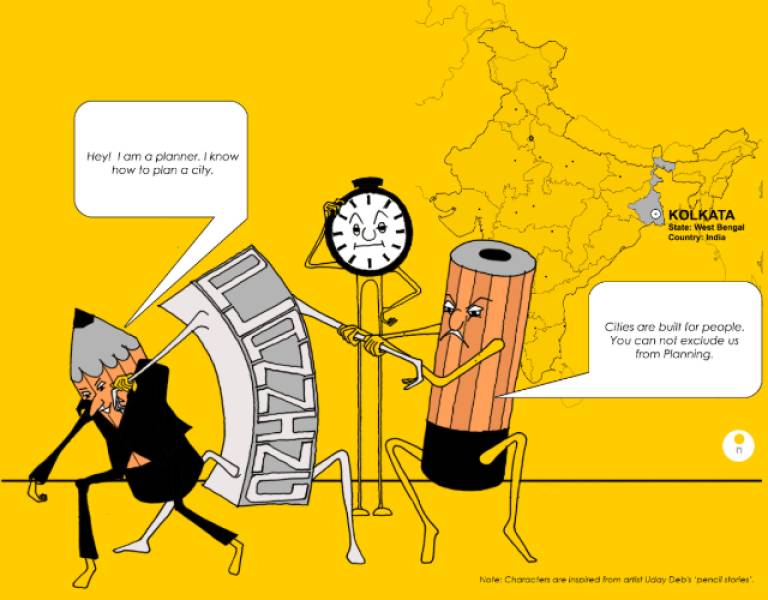
Debayan Chatterjee's comic strip here questions if mainstream planning in India truly serves communities or perpetuates social injustice. The comic emphasises the transformative potential of integrating time into the planning process for building more socially just cities.
The purpose of my MSc research work was never to recommend replacing long-term macro-spatial interventions with short-term micro-spatial practices. Rather, it recognises that Indian cities are the outcome of a complex interplay between different layers of macro-scale formal planning and alternative (time-bound) micro-scale placemaking. Therefore, instead of creating rigid rules about the ‘accepted’ and ‘unaccepted’ forms of urbanism, I strongly argued that experiment-led, collaborative place-making practices should be facilitated by formal planning processes. The impermanent, adaptable, and alternative would then offer a range of opportunities to individuals and communities to shape socially-just living environments. This, however, necessitates strategic changes in the current planning processes and education system in India.
My aspirations extend to further explore these directions through a future Ph.D., with the belief that such scholarly contributions would not only benefit Indian cities but also provide critical development insights for other Global South cities too, grappling with increasing everyday uncertainties."
Learn more about Debayan Chatterjee through his alumni profile.
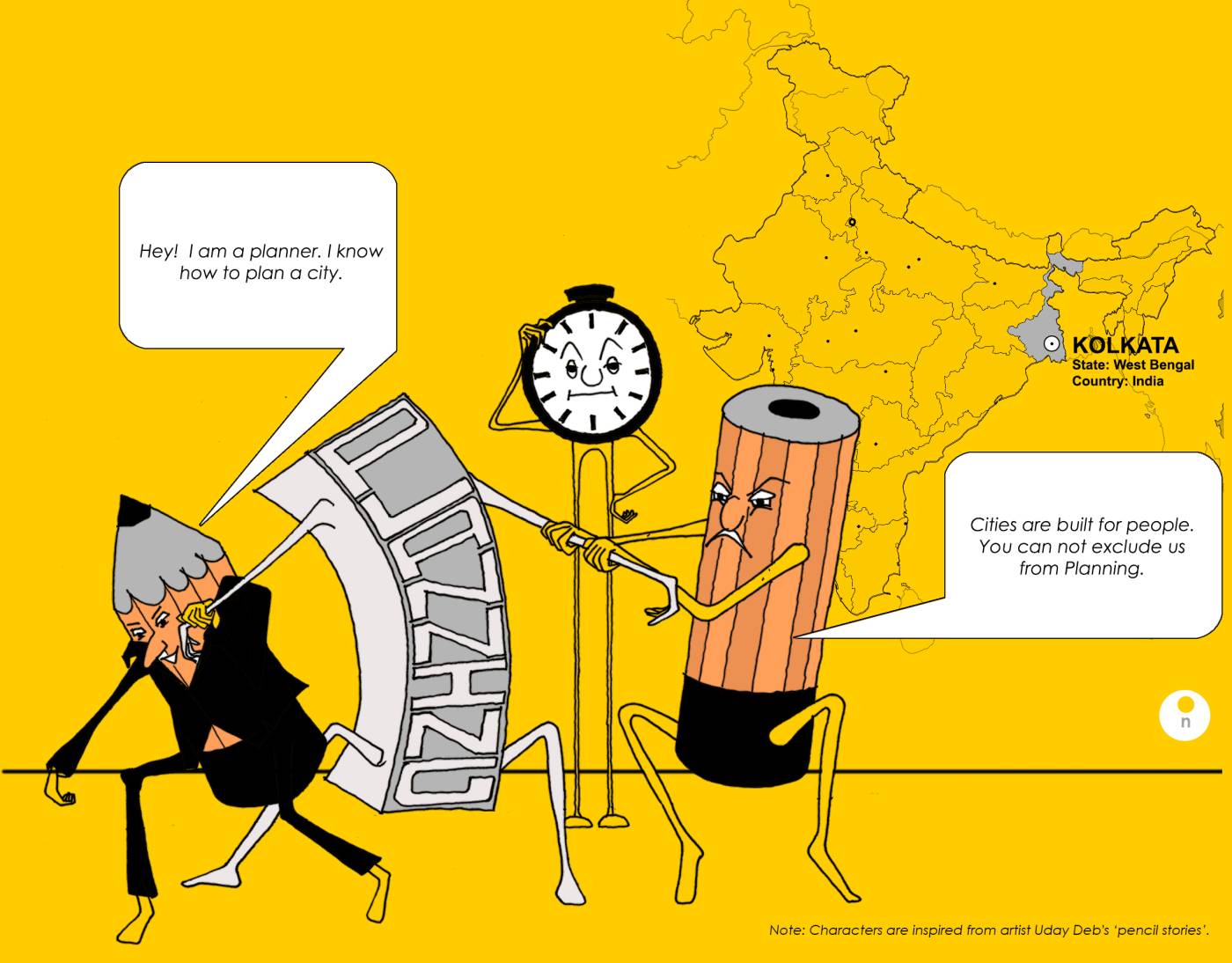
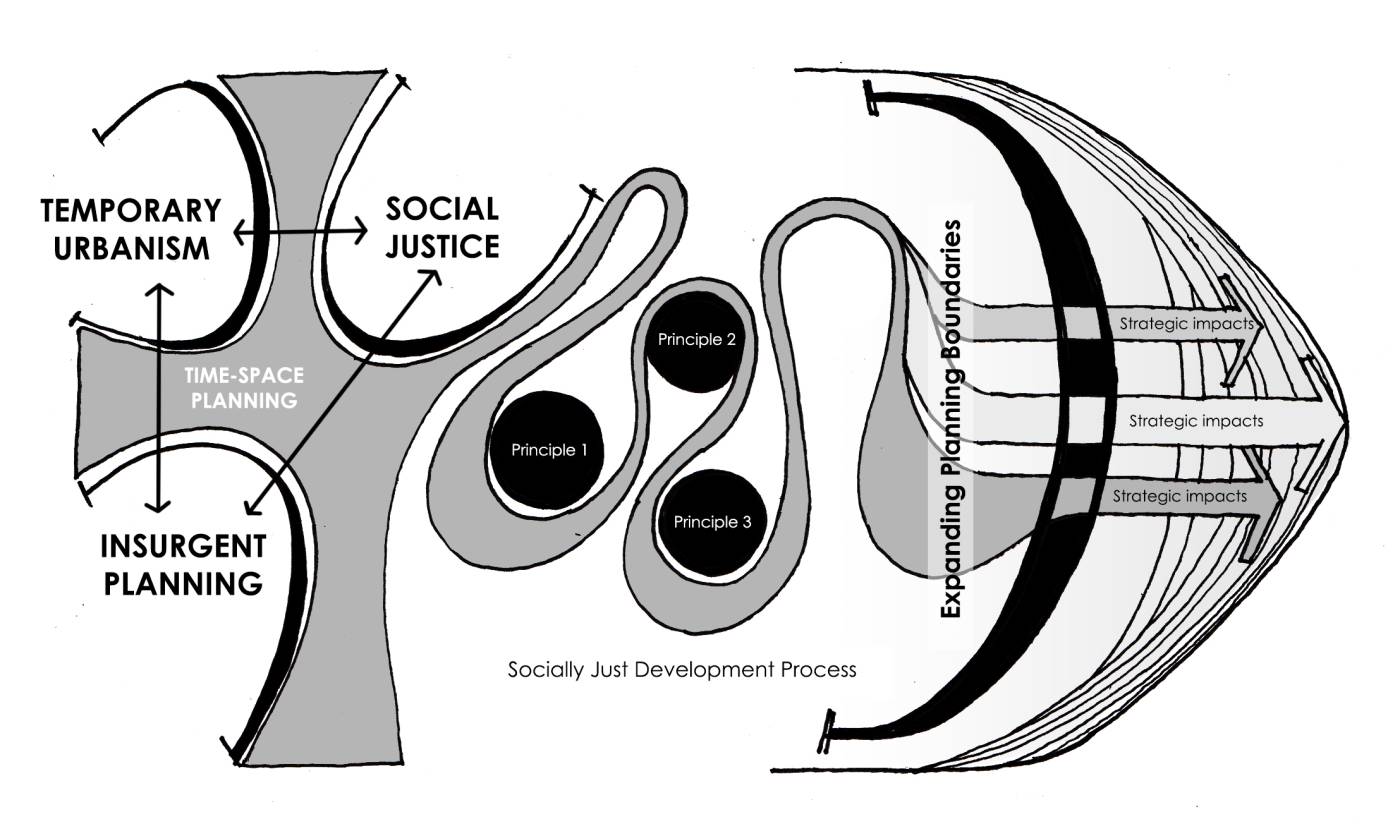
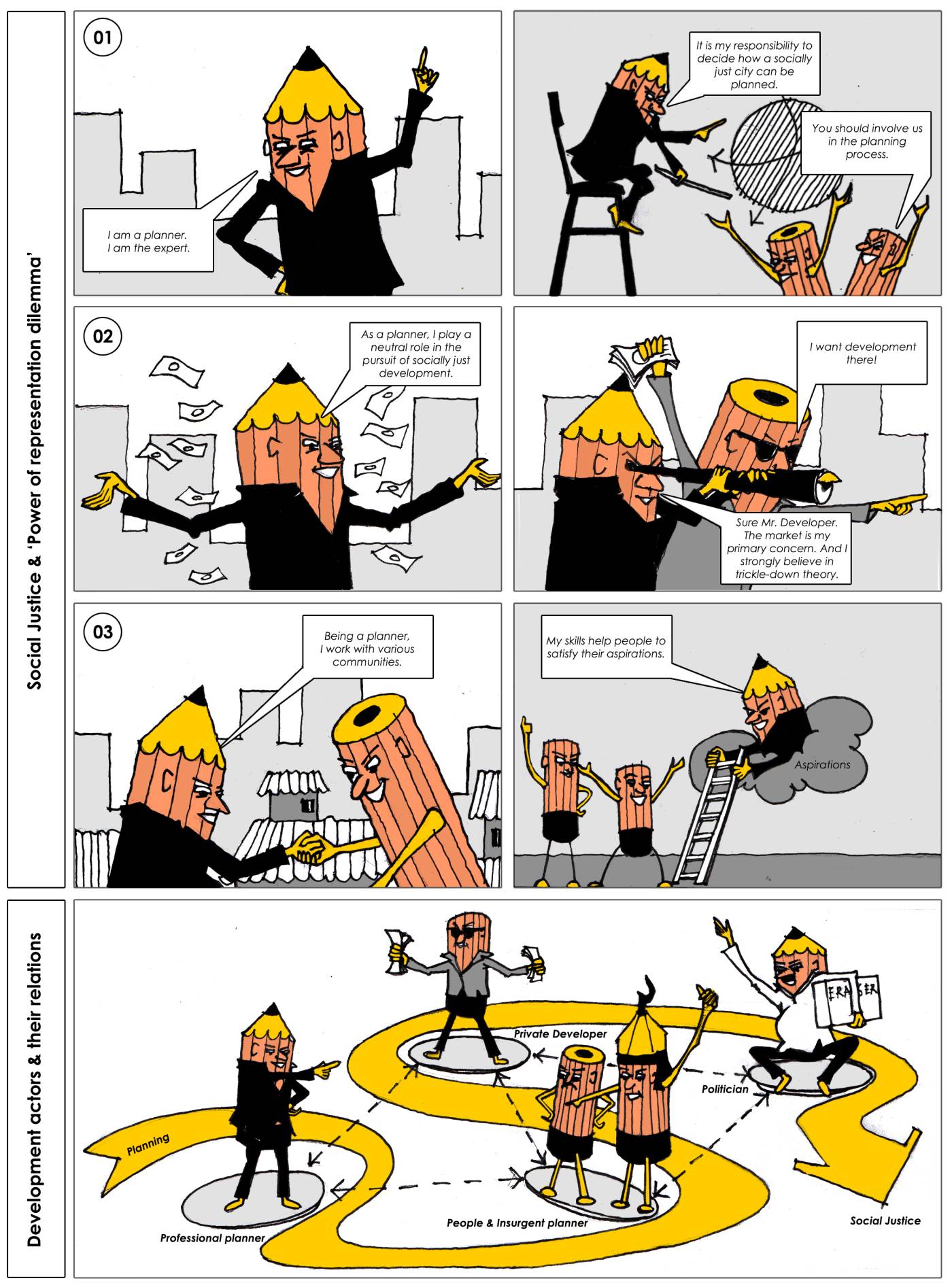
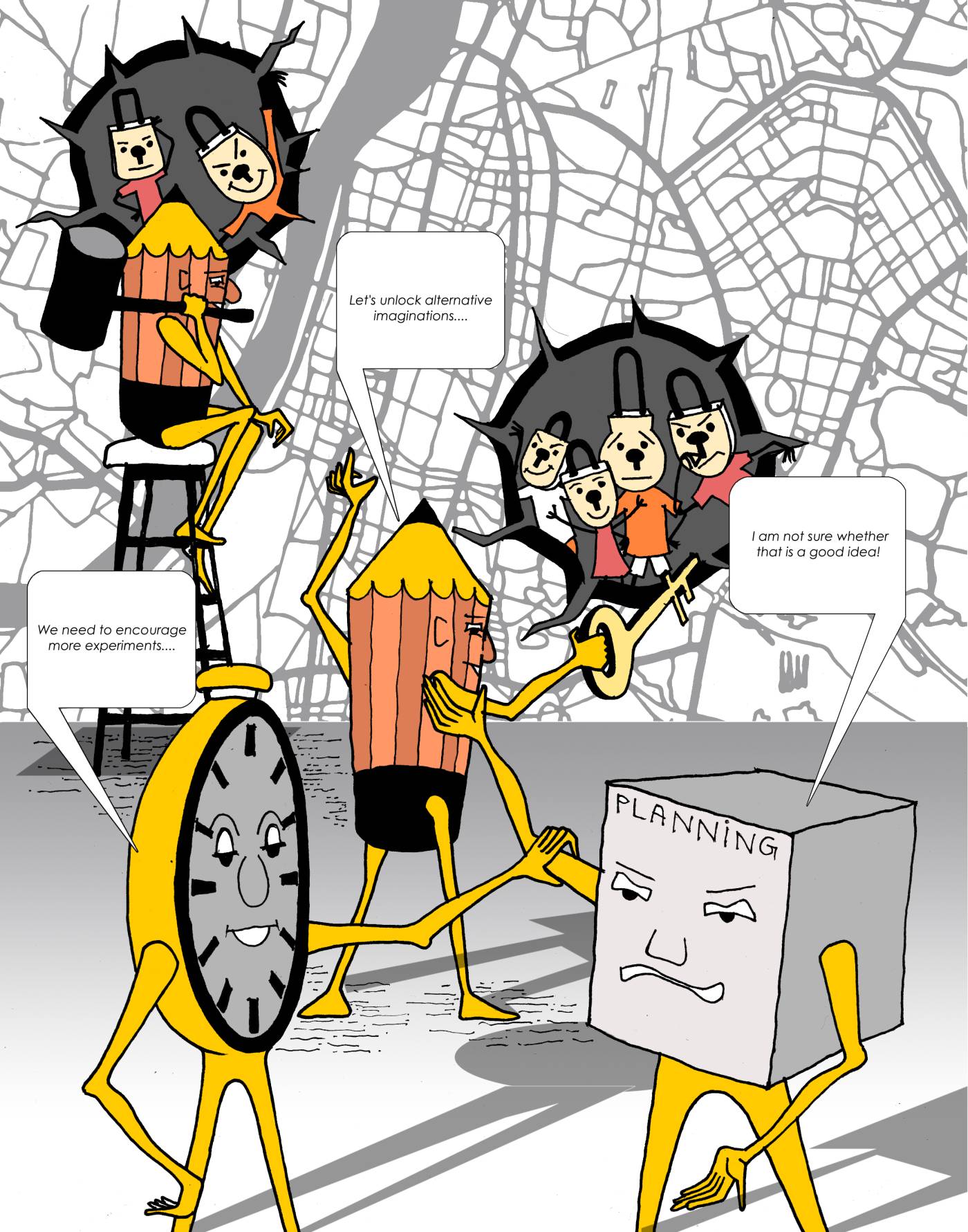
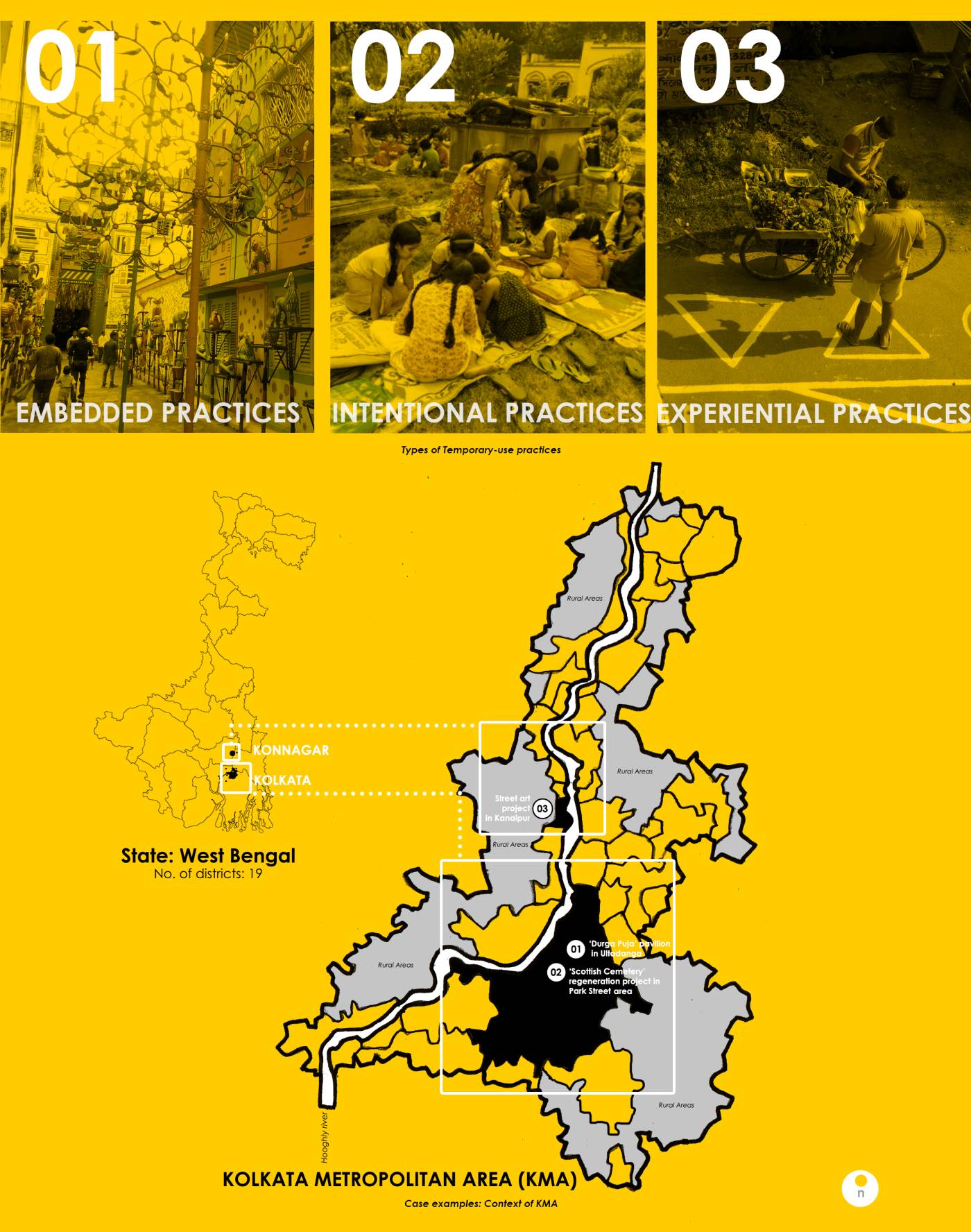
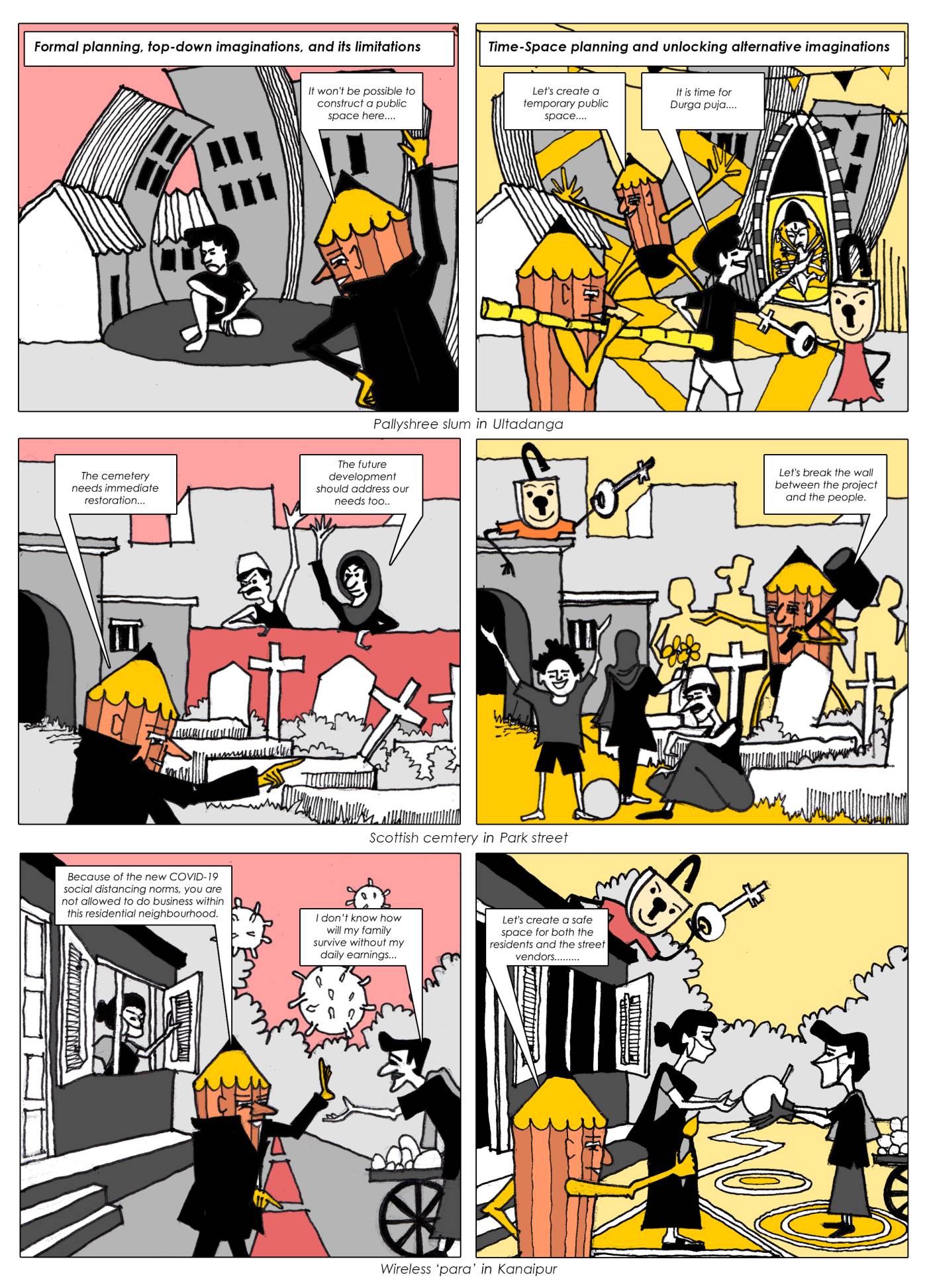

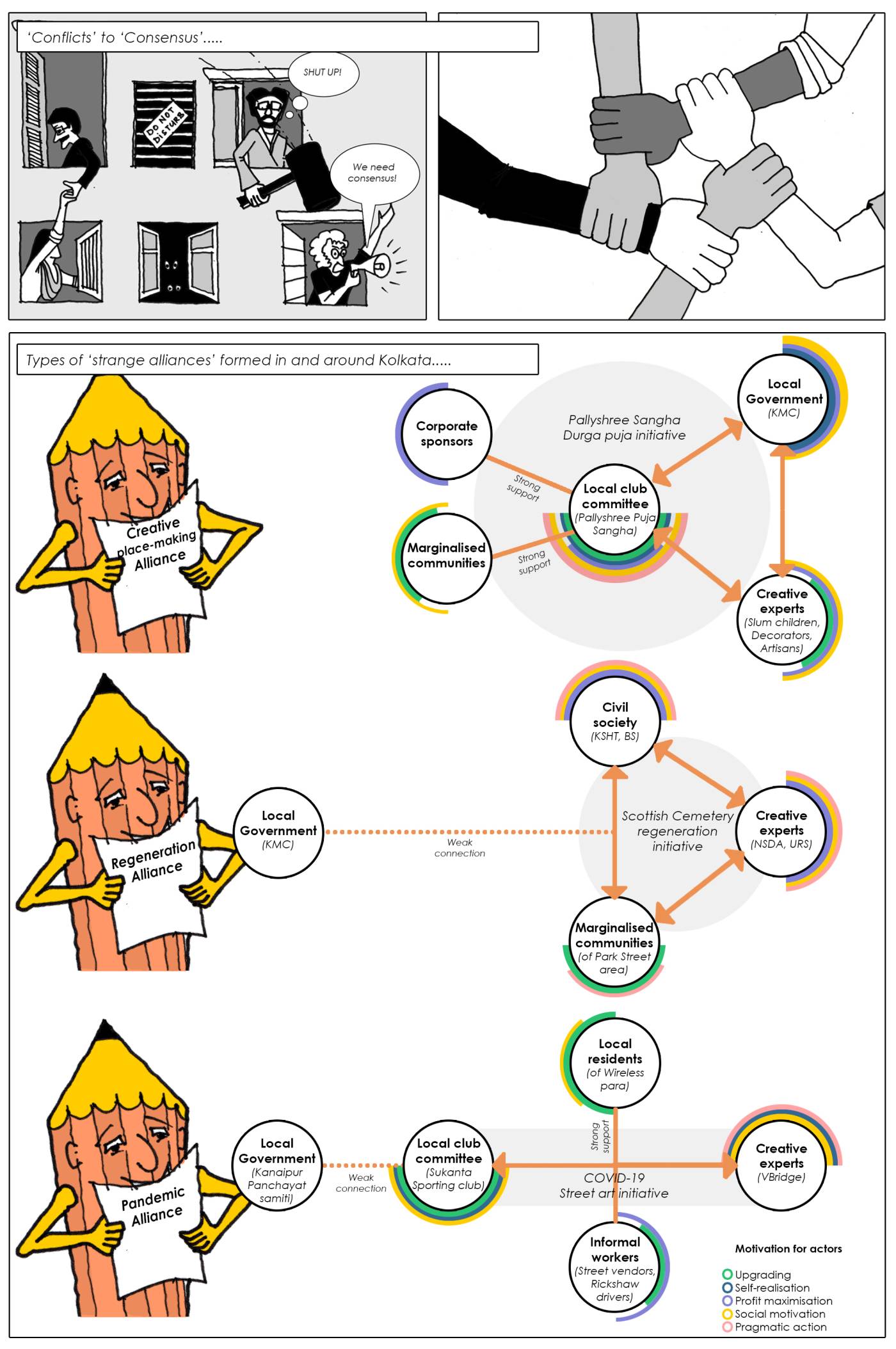
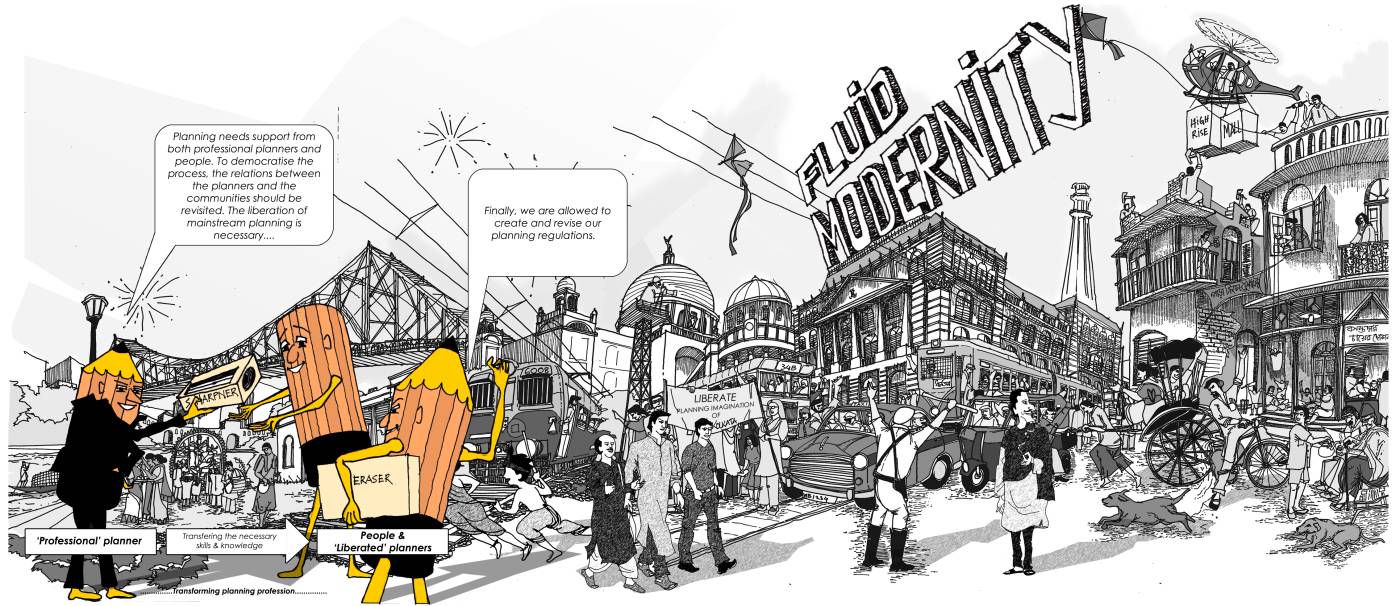
All illustrations were created by Debayan Chatterjee.
 Close
Close

